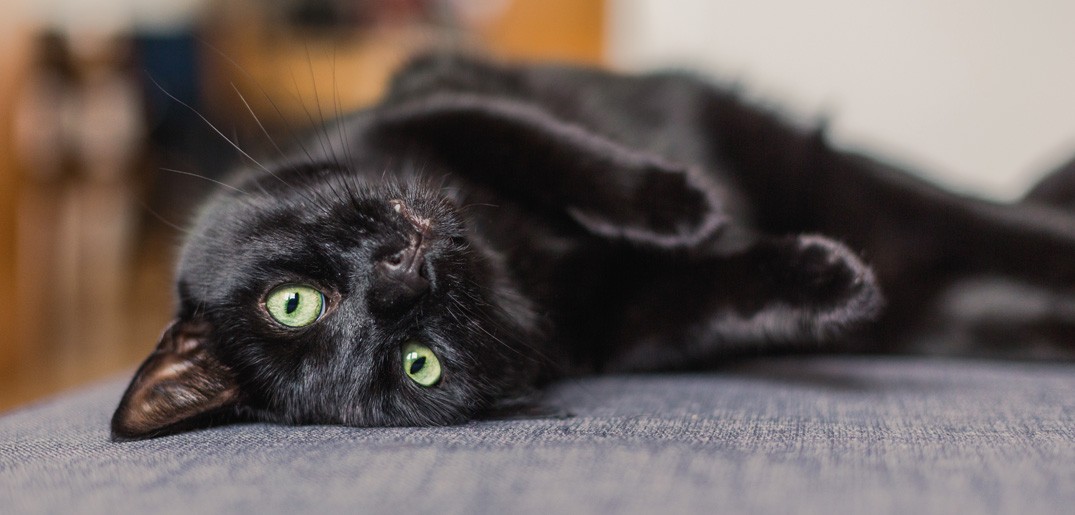In OTC Category Reviews
Follow month by month updates on topics including asthma, mental health and skin conditions and be able to provide informed advice to customers at the counter.Bookmark
Pharmacy teams can be on hand to offer advice and recommendations for pet owners to keep their furry friends happy and healthy
As a nation, we love our pets. In fact, a survey conducted by the Pet Food Manufacturers’ Association (PFMA) has found that to cheer us up during lockdown, 3.2 million households acquired a new pet – that’s one in 10 homes with a new family member.
This boost in ownership means demand for pet health products and advice is likely to be higher than ever. So, what are some of the most common concerns, and how
can the pharmacy team help?
Fleas
Adult fleas are blood-sucking parasites that can live for up to a year, with females capable of laying 50 eggs a day and 1,500 in a lifetime. According to the RSPCA, around 95 per cent of flea eggs, larvae and pupae live in homes – on beds, carpets and sofas – rather than on pets themselves.
Flea bites are terribly itchy, but fleas can also pass on diseases. For example, the serious rabbit disease myxomatosis is spread by fleas. Tapeworm eggs can also live in flea larvae, which could be eaten by the pet – see the worms section.
To stop fleas becoming a problem, pets and homes should be treated regularly. A range of treatment and prevention products can be sold from the pharmacy, with other treatments available from vets. Spot-on treatments, applied to the back of the pet’s neck, are quick and easy options and even help to prevent infestations. Regularly using a fine-toothed comb to check for fleas is advisable.
Note that flea treatments for some species are not suitable for others. For example, dog flea treatments containing permethrin are highly toxic to cats.
Ticks
Ticks are blood-sucking parasites too, but unlike fleas, which can jump more than 100 times their own body length, ticks can’t jump. Instead, they just climb or drop onto animals when they are close enough. This usually happens in grassy areas or woodlands, especially in warmer months. Dogs are commonly affected by ticks, and cats can get them too. They are hard to spot, but are usually the size of a sesame seed and can feel like a bump on the skin.
Pets can be treated with products that either kill or repel ticks. They are available as spot-on (topical) treatments or tablets, and some can be sold in pharmacy.
If a pet does pick up a tick, it should be removed as soon as possible as ticks can cause serious illnesses such as Lyme disease, which can spread to humans. The whole tick must be removed, although this can be tricky as they tend to embed themselves into host animals. The best solution is a tick removal tool, which can be sold over the counter. If an owner is worried about a tick on their pet, they should be referred to a vet.
Worms
Parasitic worms such as roundworm, tapeworm and lungworm can be serious and sometimes fatal. “Even animals that look healthy can carry worms, so it’s very important to worm pets regularly,” says the RSPCA.
Pets can pick up worms from other animals, from eating worm larvae or eggs, or from eating raw meat or infected parasites such as fleas. Customers can be reassured, however, that tapeworms from pets cannot be picked up by humans, and the threadworms that are common in children do not come from animals.
The RSPCA advises that adult dogs and cats should be treated for worms every one to three months, as a matter of routine – not just when worms have been seen – as many pets don’t show signs of infection. Suitable products are available for sale from pharmacies in both topical and oral form. An effective flea treatment should prevent tapeworms as well.
Top 10 pets
According to the Pet Food Manufacturers Association, there are now 34 million pets in the UK, including:
- 12 million cats
- 12 million dogs
- 1.3 million indoor birds
- 1.2 million domestic fowl
- 1 million rabbits
- 800,000 guinea pigs
- 600,000 hamsters
- 500,000 horses and ponies
- 500,000 pigeons
- 400,000 tortoises and turtles.
Another five million households keep fish in aquariums and four million have them in outdoor ponds.
Grooming
Not only can regular pet grooming help to build a bond of friendship, it’s also good for pets, not to mention calming for owners. Brushing an animal’s coat is like a massage, so it improves blood flow around their body. It also removes dead and loose hair, and keeps their coats smooth and tangle-free. Plus, it can help with flea detection.
Special brushes suitable for pets should be used in gentle strokes, following the direction of hair growth. A range of different brushes can be stocked in pharmacies as part of the pet care offering.
Cats and dogs need to be brushed regularly so their hair doesn’t become matted. The PDSA recommends once a week for short-haired breeds, a few times a week for medium-haired breeds and once a day for long-haired breeds.
Weight management
Obesity levels among UK pets are increasing, with lockdown contributing to the problem. According to the PDSA Animal Wellbeing (PAW) Report published in November 2020, eight per cent of dog owners and six per cent of cat owners said their pet had gained weight during lockdown. In addition, 17 per cent of cat owners and 14 per cent of rabbit owners said they had fed their pets more treats during this period. Veterinary experts have long warned of an existing pet obesity epidemic, with an estimated half of all UK pets being overweight or obese even before these lockdown figures are taken into account.
As is the case for humans, being overweight can have negative health consequences for animals, such as increasing the risk of diseases like diabetes, heart disease and cancer, as well as shortening their lives.
Ensuring adequate levels of exercise are achieved each day and not over-feeding are important considerations. To help customers ensure their pets maintain a healthy weight, download a Pet Size-O-Meter from PFMA to pin up in store.
Teeth cleaning for dogs
Dogs often have problems with their teeth, so the RSPCA advises starting teeth cleaning every day at the puppy stage so they get used to it. If an owner hasn’t done this, they can gradually introduce teeth cleaning by regularly having their finger near the dog’s mouth and slowly introducing brushing. A vet can advise on proper technique, while the pharmacy can supply special dog toothpastes, as well as toothbrushes that go over a finger. Human toothpaste is not suitable for dogs, although child sized toothbrushes can be used.
Coming out of lockdown: what it means for pets
Lockdown has had a massive impact on the nation’s pets – and not just because we own more of them.
According to Ali Taylor, head of canine behaviour at Battersea, pets have adjusted to having their owners at home 24/7. However, as the nation moves out of lockdown and owners go back to working outside the home, many pets will find this distressing. “While dogs are more likely to suffer from separation anxiety, cats can also find it stressful when their routine changes suddenly,” she says.
But there are steps people can take to help minimise upset to their pets, including these suggestions from Battersea that can be passed onto customers:
- If working from home, start working in a different room or area from your pet
- When going to start work, give the pet any toys and treats you normally would when leaving the house. If the owner hasn’t been utilising enrichment toys previously, now is the ideal time to try them – puzzle feeders are great at keeping both dogs and cats mentally stimulated
- Build up time alone slowly and reward good behaviour. Start small, even if that means only closing the door for 30 seconds at first
- Exercise dogs before leaving them so they have a chance to burn off some energy. Make sure they have access to things to keep them busy, such as a food-filled toy or hard chew toys for a dog, and a puzzle feeder with treats for a cat
- Build up a dog’s confidence with rewards for good behaviour and mental stimulation such as teaching them new tricks
- Cats might have become accustomed to having someone home all day to let them in and out of the house. Suddenly restricting this might be confusing, so it could be a good time to install a cat flap.
Sponsored
 Sponsored education
Sponsored education
7 steps to managing sore throat
Get to grips with what customers want from their sore throat treatment and upgrade your consultations with this 7-step guide
 Sponsored education
Sponsored education
Challenge your thinking on warts and verrucas
Discover different treatment options for warts and verruas and when to recommend them to your customers, based on their individual needs


Record my learning outcomes